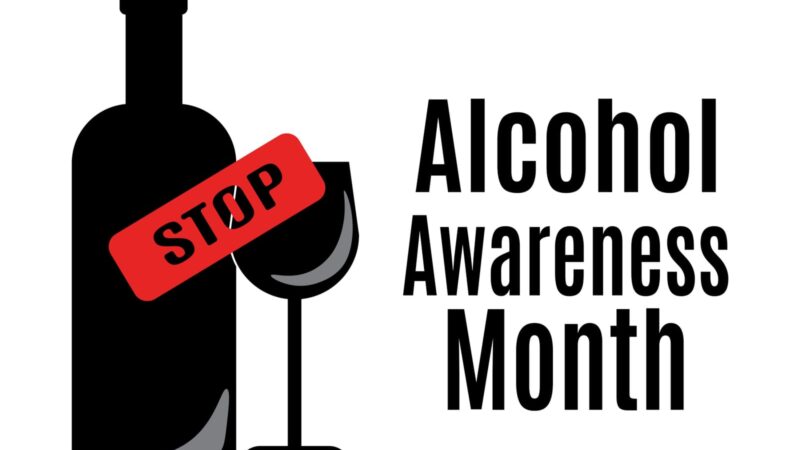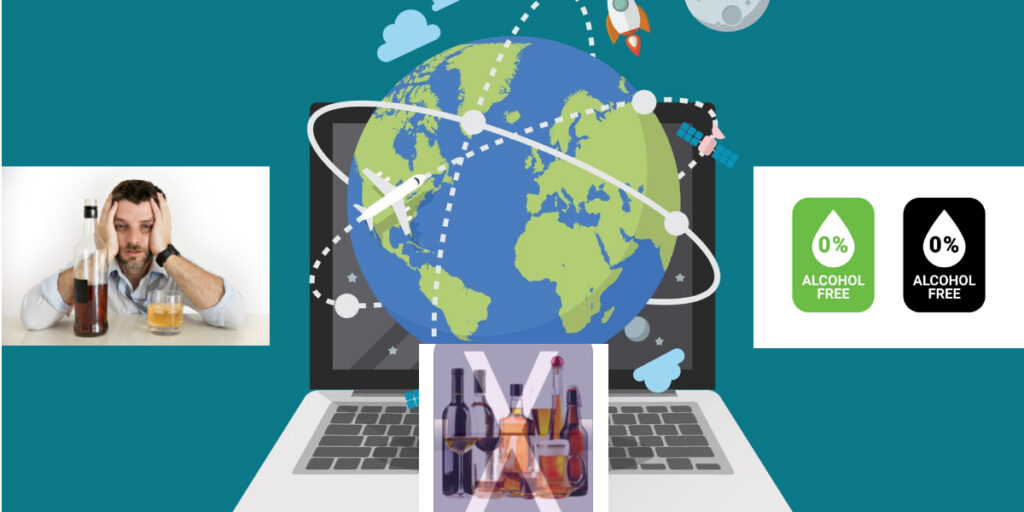
The importance of alcohol awareness
It is important to understand why East Basildon PCN promotes alcohol awareness to its patients and wider community.
There are reasons why people should be aware of how much alcohol they consume and how they function in society while drinking alcohol.
The global strategy to reduce harmful alcohol use
Harmful alcohol consumption leads to three million deaths annually.
The World Health Organisation has a global strategy to combat this issue.
Watch this short video about the importance of alcohol awareness commissioned by the WHO – World Health Organisation.
Overview of harmful alcohol use
When we consider the impact of alcohol on a global scale, it becomes apparent that alcohol is not just a drink; it is a substance that has profound consequences on individuals and societies worldwide.
Let’s delve into the sobering reality of harmful alcohol use.
Alcohol: A leading cause of death worldwide
One stark fact that cannot be ignored is that alcohol stands as a leading cause of death across the globe.
Every year, an alarming three million lives are lost due to the harmful consumption of alcohol.
This sobering statistic highlights the urgent need for increased awareness and action to address this pressing issue.
Health problems linked to alcohol consumption
Aside from its deadly toll, alcohol consumption is associated with a myriad of health problems.
From liver diseases to cardiovascular complications, the detrimental effects of alcohol on the human body are vast and varied.
Furthermore, mental health conditions such as depression and anxiety can often be exacerbated by alcohol misuse.
Social and economic impacts of alcohol misuse
It’s not just individual health that suffers due to alcohol misuse; the ripple effects extend to the social and economic fabric of communities.
The strain on healthcare systems, increased rates of crime and violence, and disrupted family dynamics are just a few of the social consequences of alcohol misuse.
Additionally, the economic burden of alcohol-related issues is substantial, affecting productivity and resources allocation.
The role of preventable measures
Despite the grim realities surrounding harmful alcohol use, there is hope in the form of preventable measures that can mitigate the associated risks.
How can we reduce alcohol related harm?
We can make significant strides in reducing alcohol-related harm by:
- implementing policies and interventions that promote responsible drinking
- provide access to treatment and support services
- educate individuals about the dangers of excessive alcohol consumption
As we navigate the complexities of alcohol’s impact on society, it is crucial to acknowledge the multifaceted nature of this issue.
By recognising the interconnectedness of health, social, and economic factors, we can work towards a future where alcohol is enjoyed responsibly and its harms are minimised.
The WHO’s global strategy
When it comes to addressing the global issue of harmful alcohol use, the World Health Organization plays a crucial role in devising strategies to combat this pressing concern.
With the alarming statistic that three million deaths occur annually due to the harmful use of alcohol, it is evident that action needs to be taken on a worldwide scale.
The WHO’s global strategy stands as a beacon of hope, aiming to reduce alcohol use and its detrimental effects on individuals and societies.

Aiming for a healthier world
The primary objective of the WHO’s global strategy is crystal clear – to reduce harmful alcohol use worldwide.
This ambitious goal is not merely a pipe dream but a tangible target that the WHO is actively working towards achieving.
By raising awareness, implementing evidence-based interventions, and collaborating with stakeholders, the WHO aims to create a healthier and safer world for everyone.
Evidence-based interventions
One of the key pillars of the WHO’s global strategy is its emphasis on evidence-based interventions.
This means that the strategies and policies put in place are not based on guesswork or anecdotal evidence but on solid research and proven methods.
By relying on data and scientific research, the WHO ensures that its interventions are effective in addressing the issue of harmful alcohol use.
Policies on pricing, availability, and marketing
The WHO’s global strategy includes comprehensive policies on pricing, availability, and marketing of alcohol.
By regulating these aspects, the WHO aims to reduce the accessibility and appeal of alcohol, especially to vulnerable populations.
By controlling pricing, restricting availability, and monitoring marketing practices, the WHO seeks to curb the negative influences of alcohol consumption.
Promoting public awareness and education
Public awareness and education are powerful tools in combatting harmful alcohol use.
The WHO’s global strategy recognises this fact and places a strong emphasis on promoting awareness and providing education on the risks associated with alcohol consumption.
By empowering individuals with knowledge, the WHO seeks to prevent alcohol-related harm and promote healthier lifestyle choices.
Encouraging collaboration
No single entity can tackle the issue of harmful alcohol use alone.
That’s why the WHO’s global strategy actively encourages collaboration between:
- governments
- health organisations
- non-profit groups
- and other stakeholders
By working together towards a common goal, these entities can leverage their resources and expertise to make a significant impact in reducing harmful alcohol use globally.
As we delve into the intricacies of the WHO’s global strategy, it becomes evident that combating harmful alcohol use is a multifaceted endeavour that requires a coordinated and comprehensive approach.
The WHO is leading the charge towards a world where the harmful effects of alcohol are minimised, and individuals can lead healthier and more fulfilling lives.
They do this by:
- setting ambitious goals
- implementing evidence-based interventions
- fostering collaboration
Challenges in implementation
As someone working in public health, I have encountered various challenges when it comes to implementing strategies aimed at reducing the harmful use of alcohol.
These challenges, though daunting, need to be addressed to make meaningful progress in safeguarding public health.

Uneven implementation of the global strategy
The World Health Organization’s global strategy to reduce alcohol consumption strives to save millions of lives annually.
However, the implementation of this strategy faces significant discrepancies across different regions and countries.
While some nations have taken proactive measures to enforce policies that curb excessive alcohol consumption, others lag behind due to varying priorities, resources, and levels of commitment.
Lack of political will in some countries
Political will plays a crucial role in driving the implementation of public health policies.
Unfortunately, in some countries, there is a lack of strong political commitment to address the harms associated with alcohol consumption.
Certain factors that can contribute to the reluctance of policymakers to enact stringent regulations are:
- lobbying by the alcohol industry
- conflicting interests
- a lack of awareness about the public health impact of alcohol use
Resistance from alcohol industry
The alcohol industry, with its considerable economic influence, often resists efforts to regulate alcohol consumption.
Lobbying, marketing tactics that glamorise drinking, and funding campaigns to undermine public health initiatives pose significant challenges to implementing effective strategies.
Overcoming the opposition from the alcohol industry requires resilience and unwavering dedication to prioritising public health over profits.
Limited resources for enforcement
Enforcing regulations to control alcohol consumption requires adequate resources in terms of funding, manpower, and infrastructure.
However, many regions struggle with limited resources, making it challenging to do the following:
- monitor compliance with alcohol policies
- conduct public awareness campaigns
- implement interventions effectively
Without the necessary resources, the enforcement of regulations remains a significant hurdle in achieving the goals of reducing harmful alcohol use.
Need for stronger international cooperation
Addressing the global burden of harmful alcohol use demands robust international cooperation and collaboration.
While individual countries can implement national policies, the interconnected nature of alcohol consumption necessitates coordinated efforts on a global scale.
The following are essential to overcoming the challenges posed by alcohol consumption and ensuring a healthier future for all:
- sharing best practices
- exchanging data and experiences
- mobilising resources collectively
Implementing strategies to reduce harmful alcohol use faces challenges such as uneven global strategy implementation, lack of political will in some countries, resistance from the alcohol industry, limited enforcement resources, and the need for stronger international cooperation.
Conclusion
If you or anyone you know is adversely affected by the excessive consumption of alcohol, seek help to ensure they do not cause harm to themselves or others.
If you are seeking help and need to find and contact the right services for alcohol support, visit this link on our PCN website.
For more information and resources regarding alcohol, visit this link to the National Institute on Alcohol Abuse and Alcoholism.

